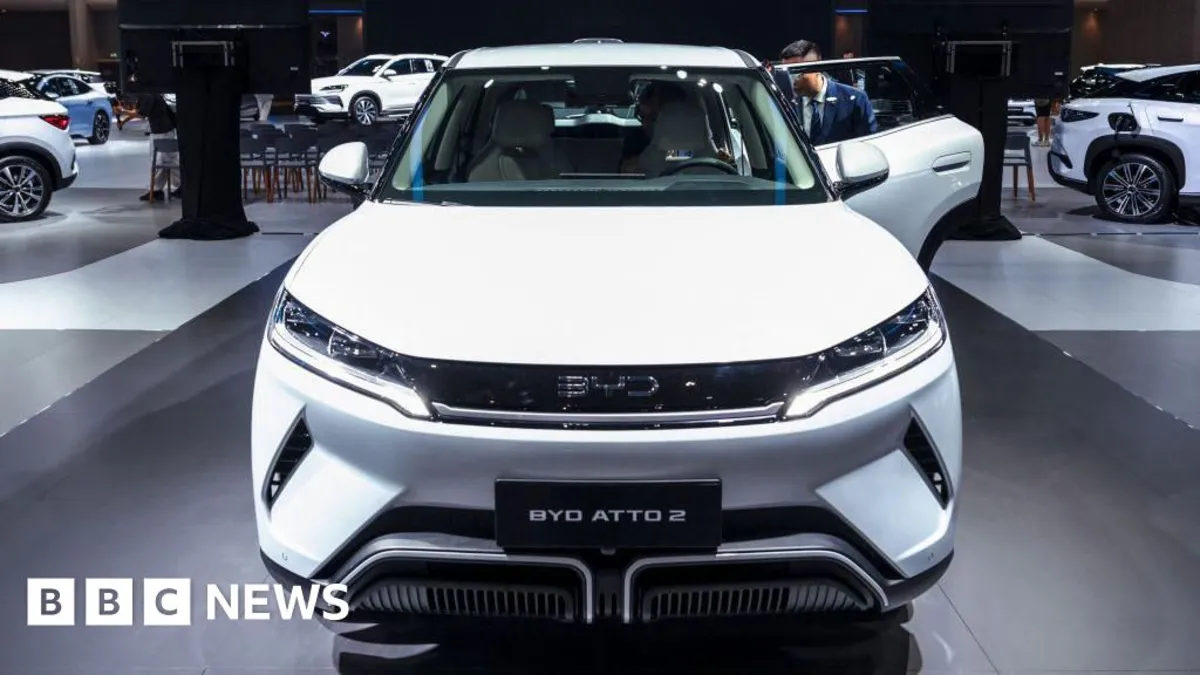
Chinese electric vehicle maker BYD has made headlines by reporting an impressive annual revenue for 2024 that has overtaken its rival, Tesla. Based in Shenzhen, BYD announced a remarkable revenue increase of 29%, reaching 777 billion yuan (approximately $107 billion or £83 billion). This surge in revenue has been significantly driven by the strong sales of its hybrid vehicles, propelling BYD ahead of Elon Musk's Tesla, which reported revenue of $97.7 billion.
In a strategic move to further challenge Tesla's dominance in the market, BYD recently launched a lower-priced car aimed directly at Tesla's Model 3, which has been the best-selling electric vehicle (EV) in China for an extended period. This comes at a critical time as Tesla faces increasing scrutiny globally, particularly due to Musk's connections with US President Donald Trump. Meanwhile, Chinese automakers like BYD have been adversely affected by tariffs in Western nations, impacting their sales strategies.
In terms of sales figures, BYD and Tesla are closely matched. Last year, BYD sold approximately 1.76 million EVs, while Tesla sold 1.79 million. However, when factoring in the hybrid vehicles, BYD's total vehicle sales skyrocketed to a record 4.3 million globally in 2024, showcasing its extensive reach in the market and highlighting the growing consumer preference for hybrid options.
On a recent Sunday, BYD unveiled its new Qin L model, which has a starting price of 119,800 yuan in China. In comparison, a basic version of Tesla's Model 3 is priced significantly higher at 235,500 yuan. This price difference is particularly relevant as Chinese consumers are increasingly cautious with their spending due to various economic challenges, including a property crisis, slowing growth rates, and rising local government debt.
In a bid to enhance its competitive edge, BYD's founder, Wang Chuanfu, recently announced groundbreaking battery charging technology that claims to fully charge an EV in just five minutes. This is a notable improvement compared to the approximately 15 minutes required to charge a Tesla using its supercharger system. Additionally, in February, BYD revealed that its advanced driver-assistance technology, dubbed God's Eye, would be available for free across all its models, further enhancing its appeal to consumers.
Shares of BYD, which has the backing of renowned US investor Warren Buffett, have experienced a remarkable surge, jumping over 50% this year. This growth reflects investor confidence in the company’s ability to navigate the competitive landscape of the EV market. Conversely, Tesla's recent political entanglements, including Musk's involvement with the Trump administration's Department for Government Efficiency (DOGE) and his support for controversial political parties in Europe, have contributed to a backlash against the company.
Despite BYD's success, it is essential to note that China's EV manufacturers are facing increasing challenges, particularly due to tariffs imposed in key markets like the US and the European Union. These tariffs pose significant hurdles, as they can limit market access and affect overall sales. Nevertheless, BYD's strategic initiatives and innovative offerings position it well to thrive in this competitive and rapidly evolving industry.